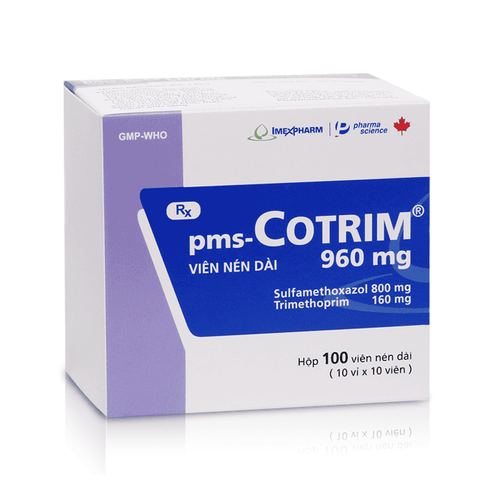Article reviewed by a specialist from the Department of General Medicine – Vinmec Central Park International General Hospital
Frequent dizziness, lightheadedness, tinnitus, and similar symptoms are associated with various health conditions, such as anemia, cardiovascular diseases, neurological disorders, or psychological issues. In these cases, patients should seek medical consultation for early diagnosis and appropriate treatment.
1. What is Dizziness?
Dizziness refers to the sensation of spinning or movement of oneself or the surrounding environment, even when there is no corresponding physical motion. In most cases, dizziness subsides within a few minutes. However, if the episodes occur frequently, persist, or are accompanied by symptoms such as lightheadedness, tinnitus, headache, nausea, or vomiting, it is essential to consult a doctor.
It is important to distinguish dizziness from lightheadedness or fainting, as they have different causes and treatments. Lightheadedness or fainting involves sensations of instability, unsteadiness, or a floating feeling, unlike dizziness, where the perception is of spinning, tilting, or the environment moving.
2. Lightheadedness and Dizziness Are Symptoms of Various Conditions
Dizziness can be a symptom of the following conditions:
• Vestibulocochlear Nerve Disorders (Cranial Nerve VIII):
These may be caused by factors such as viral infections, degeneration, or inner ear infections affecting the vestibulocochlear nerve. Vestibular dysfunction often leads to severe spinning dizziness accompanied by nausea, vomiting, and pale or clammy skin.
• Benign Paroxysmal Positional Vertigo (BPPV):
This is a common condition characterized by sudden, brief episodes of dizziness triggered by specific head movements. It is caused by displaced otoliths (calcium carbonate crystals) in the semicircular canals of the inner ear. Symptoms include dizziness, loss of balance, and nausea, particularly when standing up or getting out of bed. Treatment for BPPV primarily involves:
• Head positioning maneuvers to reposition the displaced otoliths (e.g., Epley or Semont maneuvers).
• Vestibular rehabilitation exercises to improve balance and vestibular function.
• Vestibular suppressant medications, which play only a supportive role.
• Meniere’s Disease (Idiopathic Endolymphatic Hydrops):
This condition is more common in individuals aged 40–50 years. It manifests with symptoms such as dizziness, tinnitus, hearing loss, ear pain, and nausea. Episodes of dizziness can last from 20 minutes to 4 hours. Meniere’s disease occurs due to an imbalance in pressure between the endolymph and perilymph in the inner ear. While the disease cannot be cured, it can be managed with the following approaches: Diuretics to reduce fluid retention; Dietary changes, such as reducing salt intake and avoiding caffeine-containing foods like coffee, tea, and soda. In some cases, surgical intervention may be required to alleviate symptoms.

Lightheadedness and dizziness can be symptoms of the following conditions:
• Anemia: In individuals with anemia, the body lacks sufficient hemoglobin, leading to fatigue, dizziness, and, in severe cases, headaches and pale skin. Causes of anemia include prolonged nutritional deficiencies, heavy menstrual bleeding in women, or parasitic infections such as hookworms.
• Hypoglycemia: Low blood sugar levels can result in dizziness and lightheadedness. In such cases, patients should quickly replenish their blood sugar by drinking a glass of sugar water, eating a candy bar, or having a slice of bread.
• Stress and Overwork:
Dizziness can occur when the brain is under stress or forced to focus on tasks, such as prolonged computer use. To prevent dizziness caused by stress, patients should reduce their workload, avoid excessive mental strain, exercise regularly, and limit alcohol and stimulants such as coffee. Practices like meditation and deep breathing exercises can help alleviate symptoms and improve overall quality of life.
• Low Blood Pressure:
Dizziness often arises when transitioning from a sitting or lying position to standing, improving when lying down with the head lowered. Symptoms of dizziness caused by low blood pressure include fatigue, shortness of breath during activity, and unsteadiness. In severe cases, it can lead to fainting due to insufficient blood supply to the brain.
• Side Effects of Certain Medications:
Some medications, such as those for cardiovascular, neurological, or blood pressure conditions, may cause dizziness, lightheadedness, or tinnitus as side effects. Patients experiencing these symptoms should inform their doctor to adjust their medication or implement appropriate solutions.
3. When to See a Doctor for Frequent Dizziness, Tinnitus, or Lightheadedness
If dizziness, lightheadedness, or tinnitus occurs briefly and resolves without other concerning symptoms, such as double vision, slurred speech, numbness or weakness in the limbs, headaches, loss of consciousness, seizures, or systemic conditions like cancer, fever, weight loss, anemia, or cardiovascular disease, simply increasing rest and following a balanced diet may suffice. However, frequent occurrences of these symptoms, especially if they change in nature, are accompanied by signs of neurological damage or systemic illness, or persist for an extended period, require medical attention. These could indicate serious conditions, such as: chronic anemia, severe atherosclerosis, cardiovascular diseases, neurological disorders. In such cases, patients should consult a doctor at a reputable medical facility for an accurate diagnosis, specialized advice, and appropriate treatment to prevent progression and optimize outcomes.
Immediate Steps During Sudden Dizziness: find a safe place to lie down; move slowly and carefully when changing positions; avoid sudden movements, such as abruptly sitting or standing, as these may increase the risk of falling.
The prevention and treatment of dizziness symptoms depend on the specific underlying condition. However, patients can prevent these symptoms by maintaining a healthy lifestyle, exercising daily, avoiding stress, and ensuring adequate rest.

Regarding diet, individuals who frequently experience dizziness and lightheadedness should maintain a balanced diet, including plenty of fresh vegetables and fruits, and drink adequate amounts of water. Patients with dizziness and lightheadedness caused by hypertension should follow a low-salt, low-fat diet. Patients with anemia or iron deficiency should consume iron-rich foods such as beef, water spinach, and other similar options.
To arrange an appointment, please call HOTLINE or make your reservation directly HERE. You may also download the MyVinmec app to schedule appointments faster and manage your reservations more conveniently.
To arrange an appointment, please call HOTLINE or make your reservation directly HERE. You may also download the MyVinmec app to schedule appointments faster and manage your reservations more conveniently.








